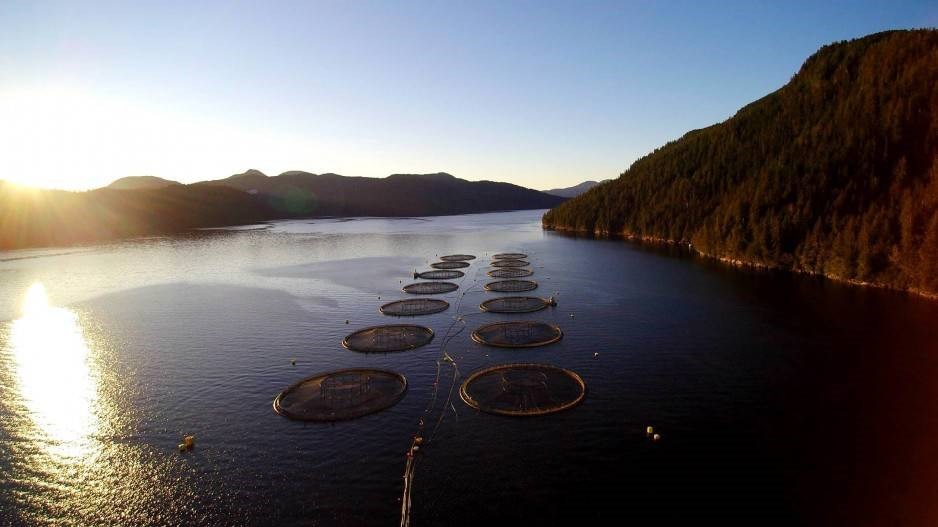Environmental groups are cheering a Federal Court decision dismissing a bid by fish farming company Cermaq Canada to have its application to transfer young salmon into net pens in the Discovery Islands reconsidered.
The decision Friday by Judge Cecily Strickland is a “lifeline to struggling and migrating wild salmon and also a re-commitment to respecting First Nations’ concerns and leadership as the stewards of these lands and waters since time immemorial,” said Christianne Wilhelmson, executive director of the Georgia Strait Alliance, in a statement.
Cermaq had sought permission to relocate close to 1.5 million Atlantic salmon from its Cecil Island fish farm to farms at Brent Island and Venture Point, where they would mature for 18 to 22 months prior to being harvested. The transfer application was turned down.
Moving the fish would have gone against the intent of a Dec. 17, 2020, announcement from federal Fisheries Minister Bernadette Jordan ordering that all fish farms in the Discovery Islands, between Campbell River and the mainland, be closed by the end of June 2022.
B.C. salmon farmers operating in the Discovery Islands have banded together to seek a judicial review of Jordan’s decision. That review is scheduled for Oct. 18 in Federal Court in Vancouver.
In the meantime, Cermaq had hoped for legal recourse to the Fisheries Department’s rejection of its application to transfer its fish into the pens. It wanted to right to apply again under criteria used prior to the 2020 announcement.
It applied for an injunction to stop the minister from imposing her decision to wind down salmon farms in the Discovery Islands as far as it relates to banning the transfer of fish during the 18-month phase-out period, until a decision is made on the judicial review.
It said it would have to cull the fish if they could not be transferred.
Strickland said that the spirit of Cermaq’s motion was that the minister should be precluded from making changes to the fish transfer process. But she did not agree that the minister is constrained from doing that and dismissed the application.
Amy Jonsson, a spokeswoman for Cermaq said the company is reviewing the decision and determining its next steps. She expects the company will be able to further comment this week.
Wilhelmson said that the minister’s decision to phase out the farms was based on consultation with local First Nations concerned about the impacts of open-net farming within their traditional territories, and on current science and the status of wild Pacific salmon stocks.
“It is time for the aquaculture industry to get serious about transitioning fish farms from open net-pens to closed containment facilities on land, which don’t use marine ecosystems to dispose of waste and parasites or sidestep reconciliation with First Nations, but will instead revive the local salmon economy.”
The Georgia Strait Alliance is part of a group which received intervenor status in the judicial review. The organizations are opposed to farms transferring fish into marine net pens.



